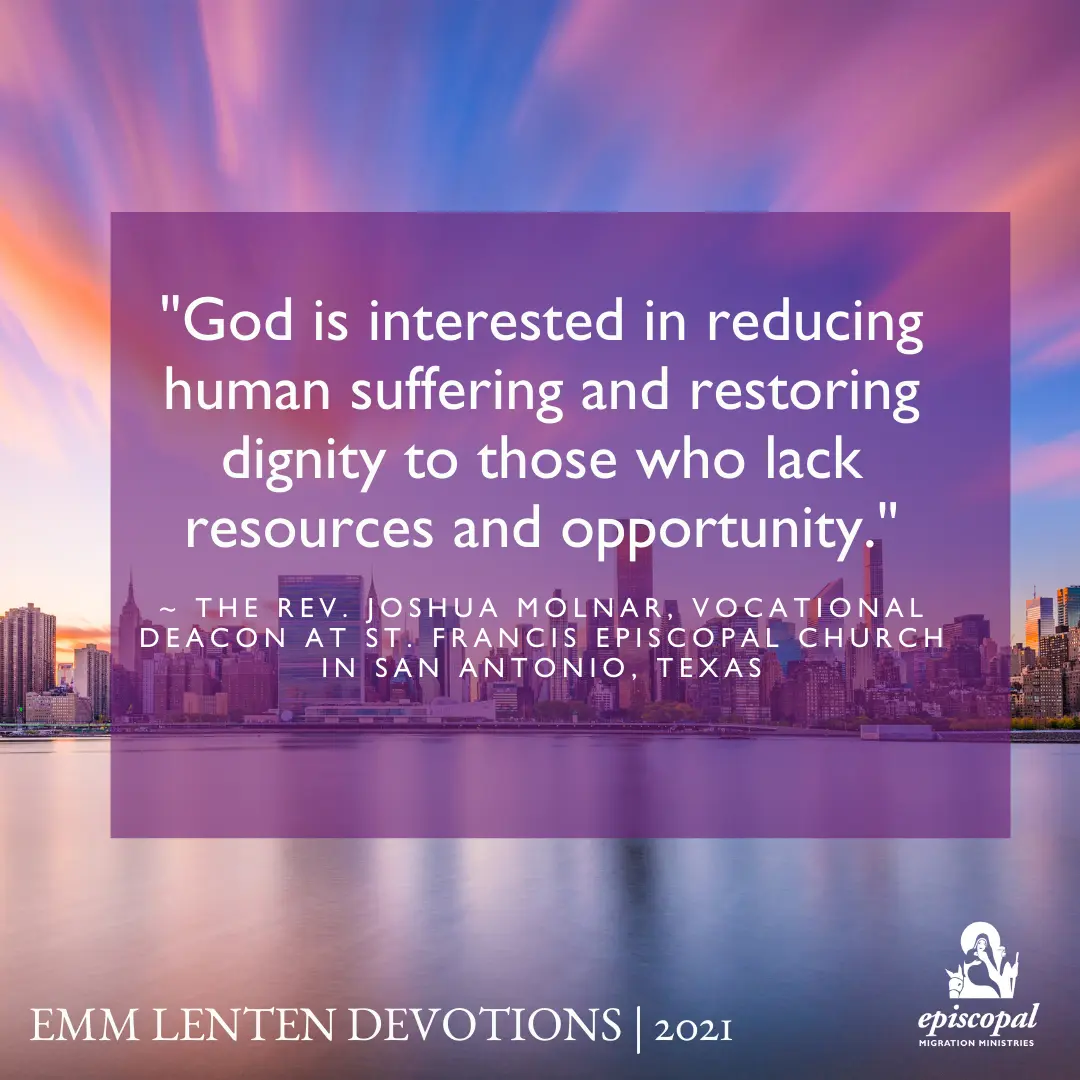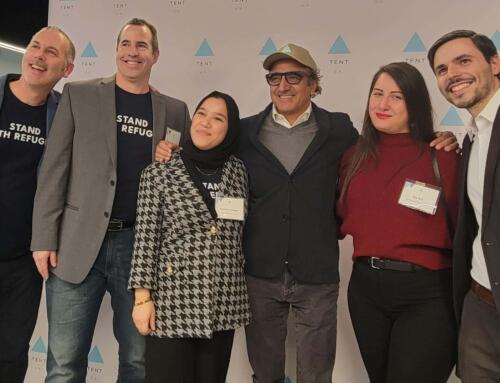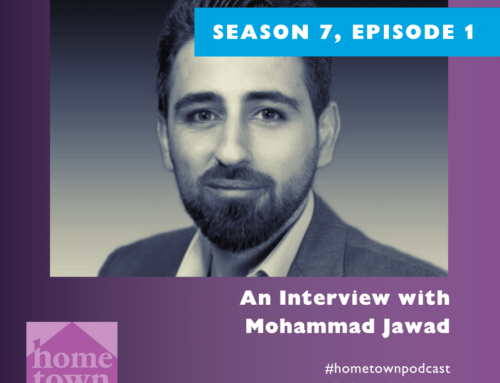Isaiah 58:12
Your ancient ruins shall be rebuilt
Reflection by The Rev. Joshua Molnar
I read Isaiah 58 when I proposed to my wife in a beautiful house on a mountain overlooking a valley in the Dominican Republic, where Haitian workers cut sugar cane and lived off less than $2 a day. Many were not born in Haiti and so they are not granted Haitian citizenship and the Dominican Republic will not give them citizenship either.
My access to education, medication, calories and leisure activities makes my middle- class American lifestyle lavish in comparison to these laborers. It was only two generations ago that my Great- Grandfather Molnar immigrated from Hungary and moved to Cleveland. My access to resources and opportunity is extraordinary compared to his too.
Unfortunately, astounding gratitude is not what is typically expressed in my hometown. I grew up in a small blue- collar town in Northwest Ohio, where GM employed 5,000 people in a city of 16,000. Now, they employ 500 but the population is the same. Often, immigrants and non- documented workers are blamed for my hometown’s struggles, even though much of it can be attributed to automation and technological improvements.
In Isaiah 58, the prophet exhorts Jacob’s leaders to consider that God is not interested in pious displays, such as laying in sackcloth and ashes. Instead, God requires feeding the poor, clothing the naked and caring for the homeless and orphan. It is in exchange for caring for the least of these that God promises to rebuild the ancient ruins and make the streets livable.
God is interested in reducing human suffering and restoring dignity to those who lack resources and opportunity.
Like my friends in my hometown, we can all become consumed with our own anxieties and spiritual concerns and civic responsibilities, which distracts our consciousness for the most vulnerable.
However, Isaiah reminds us that we will be blessed when we consider the needs of others. This aligns us with God’s interests and liberates us from the corrosive vices like fear and self-centeredness which distort our image of God and keep us from seeing the image of God in the most vulnerable.
***
Joshua Molnar is a vocational deacon who serves at St. Francis Episcopal Church in San Antonio. In May 2019, Josh moved from Indiana to San Antonio with his wife, Aimee and daughter, Miriam. He works as a social worker at the Veteran’s Administration. For fun, Josh likes to ride his mountain bike, watch sports and explore San Antonio.
Communities of Welcome:
Refugees come to the United States bringing tremendous talents and gifts, as well as resilience, determination, and hope. These gifts and skills build stronger communities through sharing vibrant cultures, increasing diversity, and strengthening local economies.
Refugees are part of a larger immigrant population that is almost twice as likely to start a business as US-born persons. From 2005-2014, refugees resettled to the US contributed $63 billion more in federal taxes than they received in federal assistance. Communities that welcome refugees often experience revitalization and renewal.
Volunteers and congregations that participate in the refugee welcoming movement find their hearts opened and lives transformed as they get to know their new neighbors and their stories.





